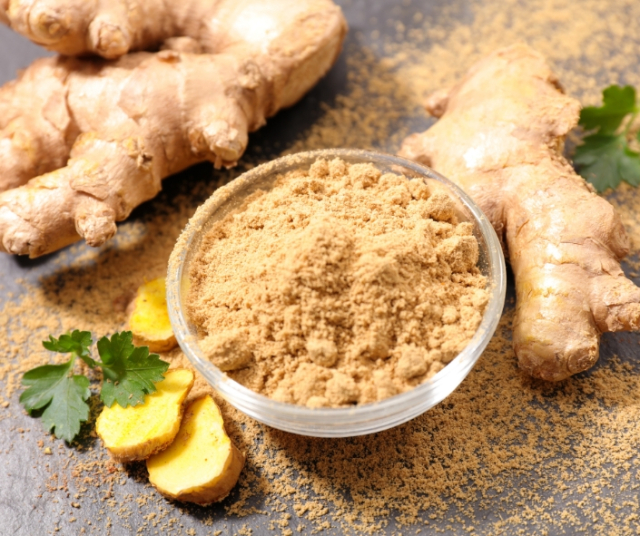Ginger is a herbaceous plant of the Zingiberaceae family. It is native to Asia and has been used in the traditional medicine of many cultures for centuries. It is also used as a seasoning in cooking, especially in Asian cuisine.
The edible part of ginger is the root, which can be used fresh, dried, powdered, or as an essential oil. The fresh root has a brown skin and pale yellow flesh, and its flavor is spicy and warm. Dried ginger is often used in the preparation of tea, while powdered ginger is used as a spice in cooking. Ginger essential oil is used in aromatherapy and in the manufacture of perfumes and skin care products.
Ginger has many health benefits. It is a rich source of antioxidants and anti-inflammatory compounds, which can help prevent chronic diseases like arthritis, asthma, and heart disease. Additionally, ginger can also help relieve nausea, improve digestion, and reduce cold and flu symptoms.
If you are interested in including ginger in your diet, you can find it in most grocery stores and supermarkets. Fresh root can be found in the produce section, while powdered ginger can be found in the spice section. You can also find ginger tea in loose leaf or tea bags.
When buying fresh ginger, be sure to look for firm, wrinkle-free roots. Avoid roots that have soft spots or mold. To store the fresh root, you can wrap it in a damp paper towel and place it in a plastic bag in the refrigerator. Fresh ginger can last up to three weeks in the refrigerator.
Here are some of the main health benefits of ginger:
anti-inflammatory
Ginger is known for its anti-inflammatory properties. Several studies have shown that regular consumption of ginger can reduce inflammation in the body. Chronic inflammation has been linked to a number of chronic diseases, including heart disease, diabetes, and arthritis. Ginger can help prevent these diseases by reducing inflammation in the body.
Relieves nausea
Ginger is a popular remedy to relieve nausea and vomiting. Ginger has been shown to be effective in relieving nausea associated with motion sickness, chemotherapy, and motion sickness. Additionally, ginger can also help relieve nausea and vomiting associated with menstruation.
Improves digestion
Ginger is also beneficial in improving digestion. It can help stimulate the production of gastric acids and digestive enzymes, which helps break down food and prevent indigestion. Additionally, ginger can also help relieve inflammation and irritation in the gastrointestinal tract, which can be helpful in relieving symptoms of ulcerative colitis and Crohn's disease.
antioxidant properties
Ginger is a rich source of antioxidants. Antioxidants are compounds that protect the body's cells against oxidative damage caused by free radicals. Free radicals can damage cells and DNA, which can contribute to the development of chronic diseases like cancer, heart disease, and diabetes. The antioxidants present in ginger may help prevent these diseases by protecting the body's cells against oxidative damage.
pain reduction
Ginger can also be helpful in reducing pain in the body. Regular consumption of ginger has been shown to reduce pain in people with osteoarthritis and rheumatoid arthritis. Additionally, ginger may also be beneficial in relieving muscle and menstrual pain.
Improves brain function
Ginger may also be beneficial for improving brain function. Compounds in ginger have been shown to help improve cognitive function and memory in older people. Furthermore, ginger can also help reduce the symptoms of Alzheimer's disease and dementia.
You should keep in mind that there are several ways in which you can consume ginger . Here are some options:
- Fresh Ginger: You can peel and grate fresh ginger root to use in preparing food or drinks. Fresh ginger can also be chewed directly to reap its health benefits.
- Ginger Tea – You can make ginger tea by cutting a piece of the fresh ginger root into thin slices and steeping it in hot water for a few minutes. Add honey or lemon to improve the flavor.
- Ginger supplements: You can find ginger supplements in the form of capsules, tablets, or liquid extracts in health food stores and online. Be sure to follow the product instructions and speak with a health professional before taking any supplement.
- Ginger Juice – You can make ginger juice by mixing fresh ginger root with water and other ingredients of your choice, such as lemon or apple.
- Powdered Ginger: Powdered ginger can be used as a seasoning in food preparation, or mixed with hot water to make ginger tea.
